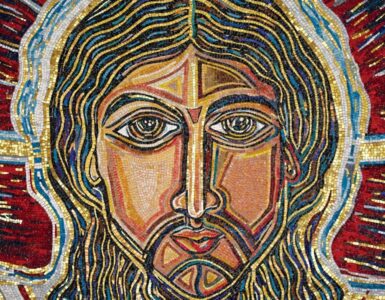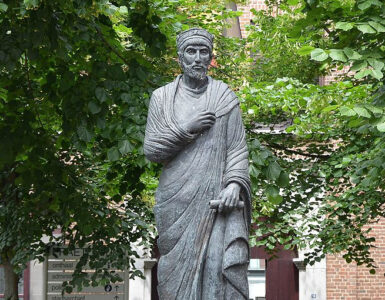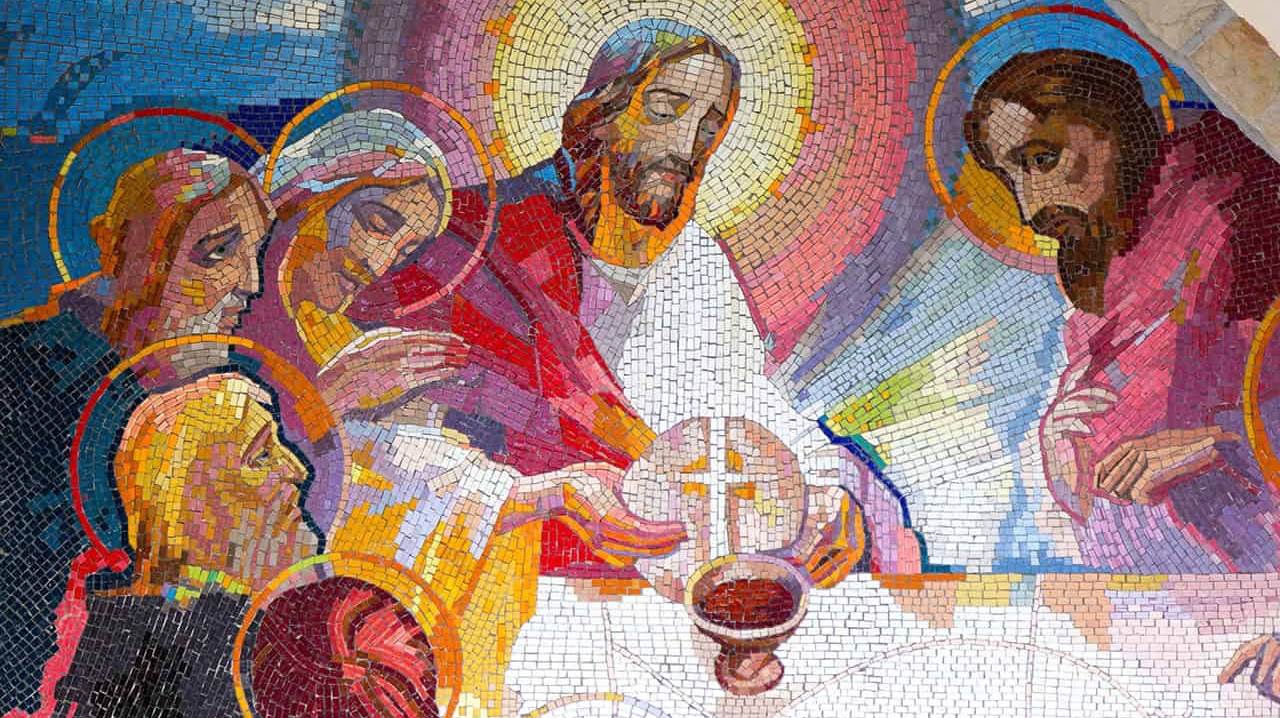Many Christians find themselves in a time of deep unease, as the Land Down Under reels from the seismic shock of the 2025 federal election. On May 3, 2025, Anthony Albanese led Labor to a landslide victory — the party’s greatest triumph since 1943 — leaving the Liberals shattered and humiliated at the ballot box. In a stunning blow, Opposition leader Peter Dutton not only failed to halt Labor’s surge but also lost his own Queensland seat of Dickson, ending a 24-year career and marking a first in Australian political history. Some Catholics, disheartened by the outcome, still remain distressed. Yet in the face of disappointment and division, there is a call not to lose hope, but to pray fervently and look ahead with resilience.
To be a Christian is to be a person of peace and of hope—a person who continually repeats the words, “Jesus, I trust in You,” believing with firm conviction that He does not abandon us in our most difficult trials. When God closes one door, He opens a window somewhere else.
Let us consider how, in our milieu, so many have been troubled by anxiety, fear, and distress in recent weeks and months. And yet, how often does the word peace appear in Sacred Scripture, spoken by the Lord Jesus Himself?
The Blessed Virgin Mary seeks to lead us into this peace—she who never lost her inner peace because she remained in constant union with God. It can rightly be said: the less present Mary and Jesus are in our lives, the more we are filled with unrest and fear. And it is precisely there that our enemy triumphs. He does everything he can to fix our attention on threats—illness, unemployment, financial hardship, or war itself.
We must not allow this. The signs of the Devil’s influence on the human heart are unmistakable: agitation, terror, panic, and especially despair.
To understand this, one must be filled with the Holy Spirit. One must pray, adore the Most Blessed Sacrament, and ask God for the strength not to be overcome by human weakness. Doomscrolling on smartphones in search of reassuring news — that, for instance, the threat of a Chinese invasion of Taiwan has passed, or that Israel has ceased its military operations — ends up having the opposite effect.
When we feel overwhelmed by the trials of life, when our faith is tested by suffering, let us look to Mary, who shows us how to persevere with steadfast faith and courage in the midst of adversity. From her, we learn to draw strength and boldness from complete attachment to Jesus Christ. (based on §§25 & 37, Redemptoris Mater, 1987, St. John Paul II)
This is what Our Lady—the Blessed Virgin Mary—reminds us of repeatedly. Whenever she has appeared in moments of great crisis throughout history, she has called us to prayer. She assures us that she desires to be our refuge and protection. She wants to support and strengthen us—but we must pray. Above all, she ardently urged the recitation of the Holy Rosary. And help indeed arrived. God intervened.
Therefore, I would now like to share two such accounts:
This is the story of a woman I met during my very first parish assignment, twenty-seven years ago. Her name was Adela. She was born in 1919 near Sochaczew, into a large, impoverished family. At the age of nine, she was sent to live with her aunt, a devout Catholic married to a German. The couple, childless themselves, took Adela in and raised her in Latvia, close to Riga.
When Adela turned twenty, her aunt passed away—and with the outbreak of World War II looming over Latvia, now threatened by Soviet occupation, she and her uncle fled to Germany, eventually settling near Berlin.
In February 1942, her life changed forever. The Gestapo arrested her after intercepting a letter she had written that contained criticism of Hitler’s regime. She was deported to the Ravensbrück concentration camp. Thus began her descent into a living nightmare.
By the spring of 1943, despair had nearly swallowed her whole. Adela recounted:
“I was utterly exhausted. I couldn’t take it anymore. Hope had vanished. I often stared at the electrified barbed wire—one touch, and it would all be over. No more cold, no more pain, no hunger, no roll calls, no forced labour. One night, I confided in Eliza, a German woman I’d grown close to: ‘Tonight, I’m going to the wire.’
She stared at me, horrified. ‘Are you mad? The devil’s gotten to you! You want to give him your soul?’
That night, as I stepped out of the barracks, I heard a voice: ‘Hurry, go faster.’
Halfway there, I heard it again: ‘Faster!’
Then a whole chorus of voices joined in, urging me on: ‘Faster, faster, faster!’
They chased after me, as though they wanted to outrun me. I raised my arm to strike the wire, to end it all—when suddenly, I saw the Virgin Mary holding the Child Jesus.
She wagged her finger at me three times—firmly—and then disappeared.
I collapsed to my knees, overwhelmed by a fear so deep I still cannot describe it. I realized I had nearly done something terrible, something I was never meant to do. Kneeling there, I prayed the Our Father and the Hail Mary.
Then strength surged through me.
As I ran back to the barracks, I heard a mocking scream, the clank of chains. I wondered where this strength had come from—how I had the energy to flee from evil itself.
I will never forget the Virgin’s warning… nor the gnashing chains, the hateful cries.
When I burst back into the barracks, the girls asked me who was chasing me.
I said, ‘Girls, from this night on I know—there is a God, and there is a devil. I’ll explain the rest another time.’
From that moment on, Adela never lost hope. She drew strength from the prayers of others and always said that her survival was by the grace of God and the protection of the Virgin Mary.
Years later, she often said that night marked a turning point—that she had stared into the abyss but had been pulled back before she could fall in. She came back from the brink, not by chance, but by a force greater than herself.
Adela departed peacefully many years ago, having lived a life filled with quiet dignity and deep faith. This story was recounted by Fr. Marek Lemiech, parish priest at Wielgolas Brzeziński, 11.05.2025.
(The original account by Dominika has been shortened and stylistically adapted for an English-speaking audience.)
My name is Dominika, and I wish to share a testimony of God’s undeniable presence in the life of our family.
Some years ago, during a pilgrimage, a seemingly chance encounter changed everything. A book fell into our hands—God the Father Speaks to His Children, the only Church-approved revelations of God the Father. What began as simple curiosity soon revealed itself as divine intervention. We came to know God not as a distant, abstract figure, but as a loving, attentive, tender Father.
At the time, my husband and I dreamed of welcoming a fifth child. But fear overshadowed our hope: my prior pregnancies had all ended in caesarean sections, and with each new child the risks increased. During another pilgrimage, we unexpectedly attended Mass at a church we had not planned to visit. At the end of the Eucharist, the priest offered a blessing for couples longing for a child. We took this as a sign. Trusting in God, we made our decision.
On May 7th—coinciding with the monthly celebration of God the Father as revealed in the aforementioned book—we learned that I was pregnant. Joy, however, was soon entwined with fear. To entrust our child and our future to God’s will, we undertook pilgrimages to Częstochowa, Gietrzwałd, and Sokółka.
Upon returning, I was scheduled for a prenatal visit on June 7th. The date seemed almost providential: it was the First Friday of the month, the Solemnity of the Sacred Heart of Jesus, and again the Feast of God the Father. We felt confident that all would be well. But then the unimaginable occurred.
During the examination, the doctor—an internationally renowned professor of gynaecology—searched in vain. There was no heartbeat. “Let’s do two rounds of beta hCG testing,” he said, “to confirm the loss.” I asked if there was any chance the child might still be alive. “One percent,” he replied solemnly. This was no mere guess; it was science speaking.
We drove home in stunned silence. How could this be? The blessings, the devotions, the pilgrimages, the symbolic dates—all seemed to mock us. Clinging to hope by a thread, we sought a second opinion in Kraków. The second doctor confirmed the worst: the baby had likely passed several days earlier. Urgent surgery was advised to prevent life-threatening complications. He handed me abortive medication and scheduled the procedure for Monday morning. I still have the hospital discharge papers documenting it.
At home, we wrestled with grief. Our younger son asked whether the baby could “come back from the angels,” and who would care for him in Heaven. “Probably not,” I replied softly. But he insisted, “He’s just with Jesus for now… he’ll return.”
Despite the sorrow, we remained faithful. It was still the First Friday, still God’s feast day. That night we went to Mass. As we wept, my older son leaned over and whispered, “What if this ends well? What if the baby lives?” “Highly unlikely,” I answered. “But Lazarus? Jesus raised him,” he said. I managed a broken smile—it seemed like a tale from two thousand years ago. Yet his words stayed with me. I recalled God’s promise from the revelations: “Whatever you ask on My feast, if it is pleasing to Me, I shall grant it.” Silently I prayed, “Father, if it pleases You, if You will it, You can still bring this child to life.”
By Monday, reason told us to proceed with the surgery. But my daughter pleaded: “Mum, you must check that one percent.”
So I went. The hCG levels had dropped by 20,000 units—clear confirmation that life had ended, or so it seemed. The professor reviewed the results and scheduled the procedure for June 11th. My husband even contacted our parish priest to discuss burial.
On Tuesday morning, the family drove me to the hospital. Surrounded by women with newborns, I sat in quiet agony. I opened Scripture, asking God for a word. My eyes fell on (Isaiah 66:14) “You will see and your heart shall exult, and your bodies shall flourish like the grass; The LORD’s power shall be revealed to his servants, but to his enemies, his wrath.”
When the doctor arrived, he noticed my tears. Kindly, he offered to repeat the ultrasound—if only to give me peace of mind. As I waited, I reached into my purse for a tissue, and by chance pulled out a holy card of the Merciful Heart of Jesus. My younger son had slipped it there long ago. Looking at it, I murmured, “Jesus, how can Your merciful Heart beat while my baby’s doesn’t?”
Moments later, I lay on the examination table. The doctor gasped. “This heart is beating.” I stared at the screen in disbelief. I had seen enough ultrasounds to know: that flickering pulse meant life. “That’s impossible,” I whispered. “Two doctors said he was gone.” He called in three colleagues. One by one, they confirmed it: the baby was alive and developing normally.
By 9:15 a.m., I was back in the car with my family. Then the phone rang. It was our priest. “How are you holding up?” he asked. “We just finished Mass for your family.” The time? 9:00 a.m. During the Consecration, Father Teodor, overcome by an inner prompting, had prayed “for a miracle for Dominika.” They had not known the surgery was scheduled for that morning. They called moments after I left the hospital. The timing was no coincidence: it was, beyond all doubt, providential.
A miracle had occurred. Our baby’s heart had begun to beat again.
Two weeks later, the professor examined me. The heart still beat strong. Reviewing the case with his team, he admitted he could find no natural explanation. “In thirty years of practice, I’ve never seen anything like it. It reminds me,” he added, “of one thing only: the raising of Lazarus.”
Months passed. As my due date approached, I tried to write this testimony but could not find the right ending. Then God wrote it for me. Though the birth was set for December 20th, complications led the professor to induce labor earlier. Our son, Wilhelm, was born on December 17th—the liturgical memorial of St. Lazarus.
There are no words great enough to express our gratitude. God is real. He is a tender Father, present at every turn. Believe it—and hold fast to this truth all the days of your life. (Source: Catholic magazine, Trwajcie w Miłości, no. 1, 2025)
A postscript:
Meanwhile, uplifting news arrives from remote Poland.
In a victory for European conservatives, pro-life advocate, and migration pact opponent, dr Karol Nawrocki secured 50.89% of the vote, according to election commission data released on June 2, 2025. The outcome presages further political gridlock, as he is likely to wield his presidential veto successfully to block Prime Minister Donald Tusk’s leftist policy agenda.
What once seemed impossible has now become reality. As recently as late December 2024, certain polls predicted that pro-choice and LGBTQ proponent, Rafał Trzaskowski was on course to secure an outright victory in the first round of the elections, while Nawrocki remained a virtual unknown. “We fell to our knees before God in the hope of securing this victory — the triumph of a candidate who professes to abide by the Ten Commandments when making decisions. Millions of Poles are firmly convinced of this, having responded to numerous prayer initiatives, fully mindful of the ongoing spiritual struggle for their Country. Against all odds, they believe, their prayers have been answered”. — wrote Małgorzata Bochenek in the Catholic daily – Nasz Dziennik. Let Poles know that, with the intercession of St. Andrew Bobola, miracles are taking place in present-day Poland, Mrs Bochenek adds.
A powerful wave of prayer for Poland flowed from countless Catholic congregations across the globe. At the forefront of this spiritual battle against the forces of evil were Carmelite Sisters in South Africa, Australia, and New Zealand. Heaven, surely, could not remain deaf to the fervent appeals offered before the Most Holy Sacrament by Tyburn Sisters in the United Kingdom, as well as the devout intercessions of Children of Mary, Dominican, and Franciscan Sisters across the United States. God intervened. No, wonder, Poland is Our Lady`s dowry.
“I felt the strength of your prayers every day throughout the election campaign. Your prayers sustained me and my family. Today, I shall pray for you. With love for Poland and with God in my heart,”- wrote, President-elect, Karol Nawrocki on the X platform. 15.06.25





























